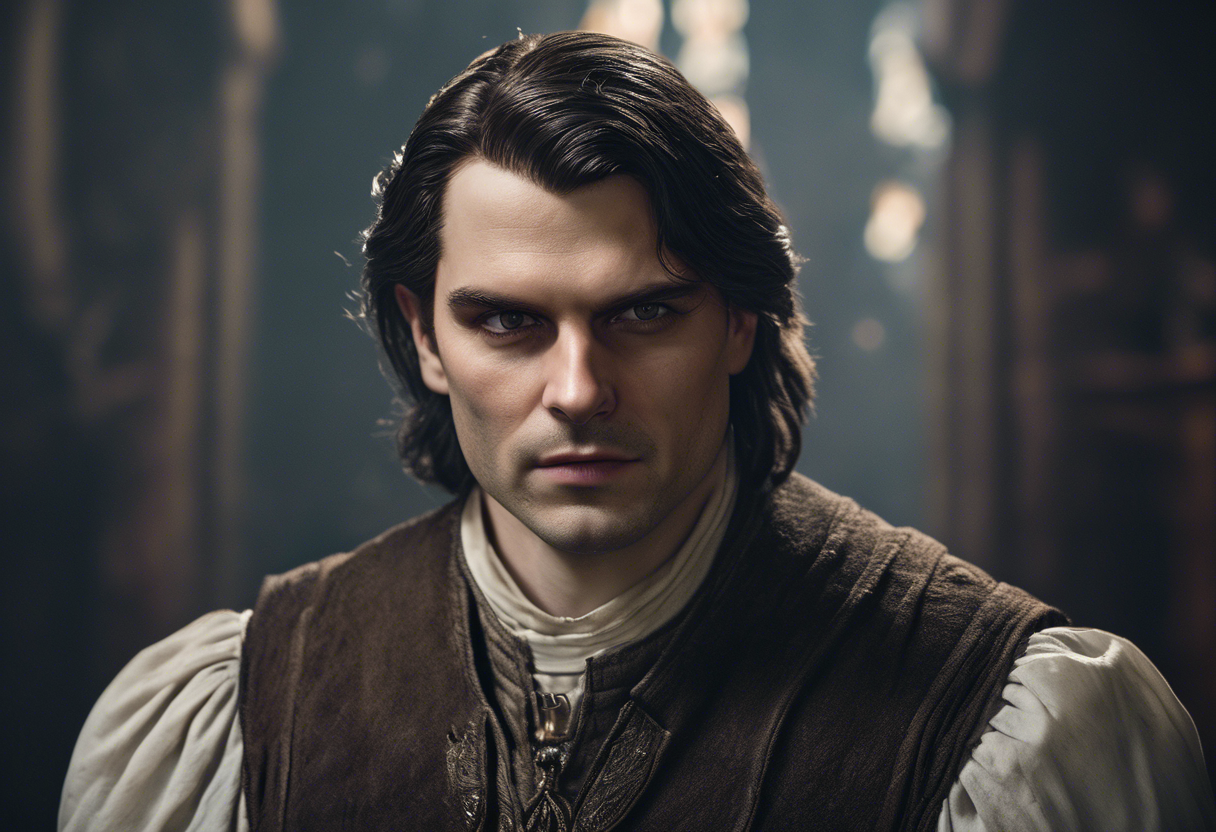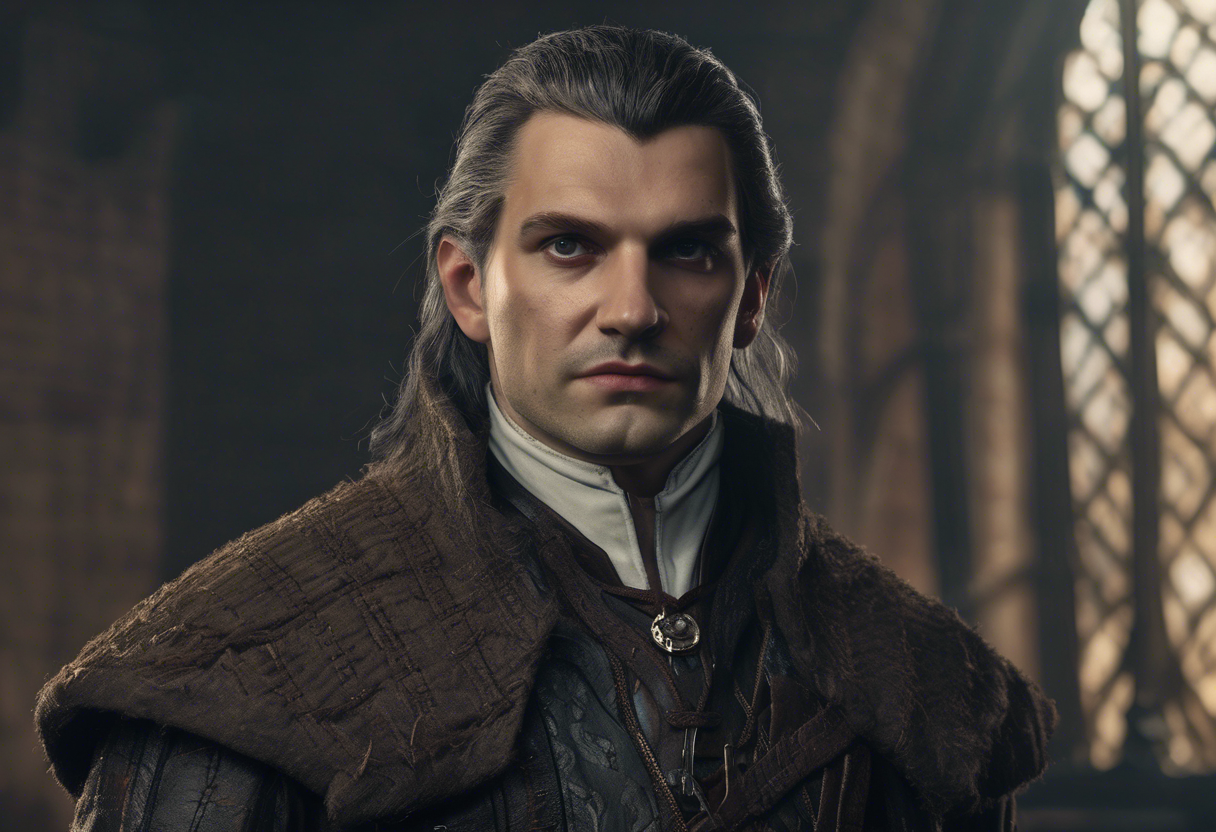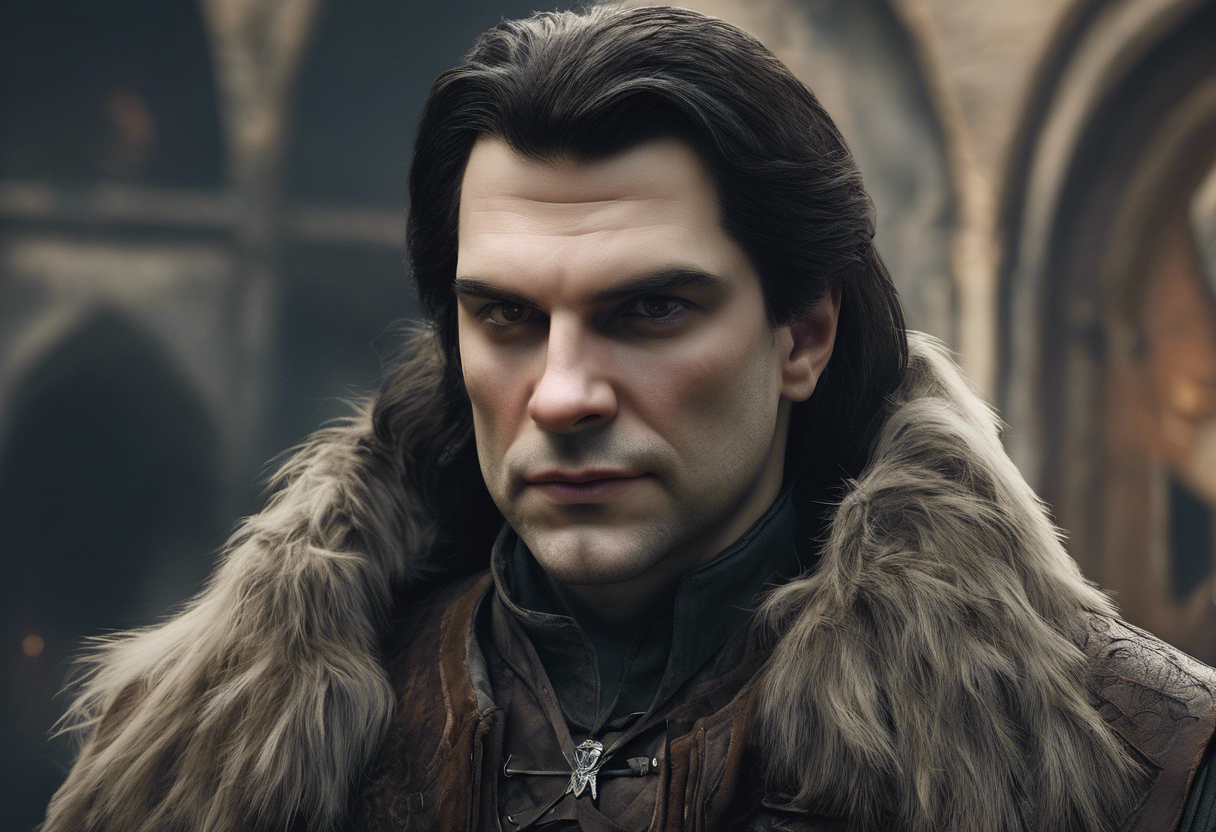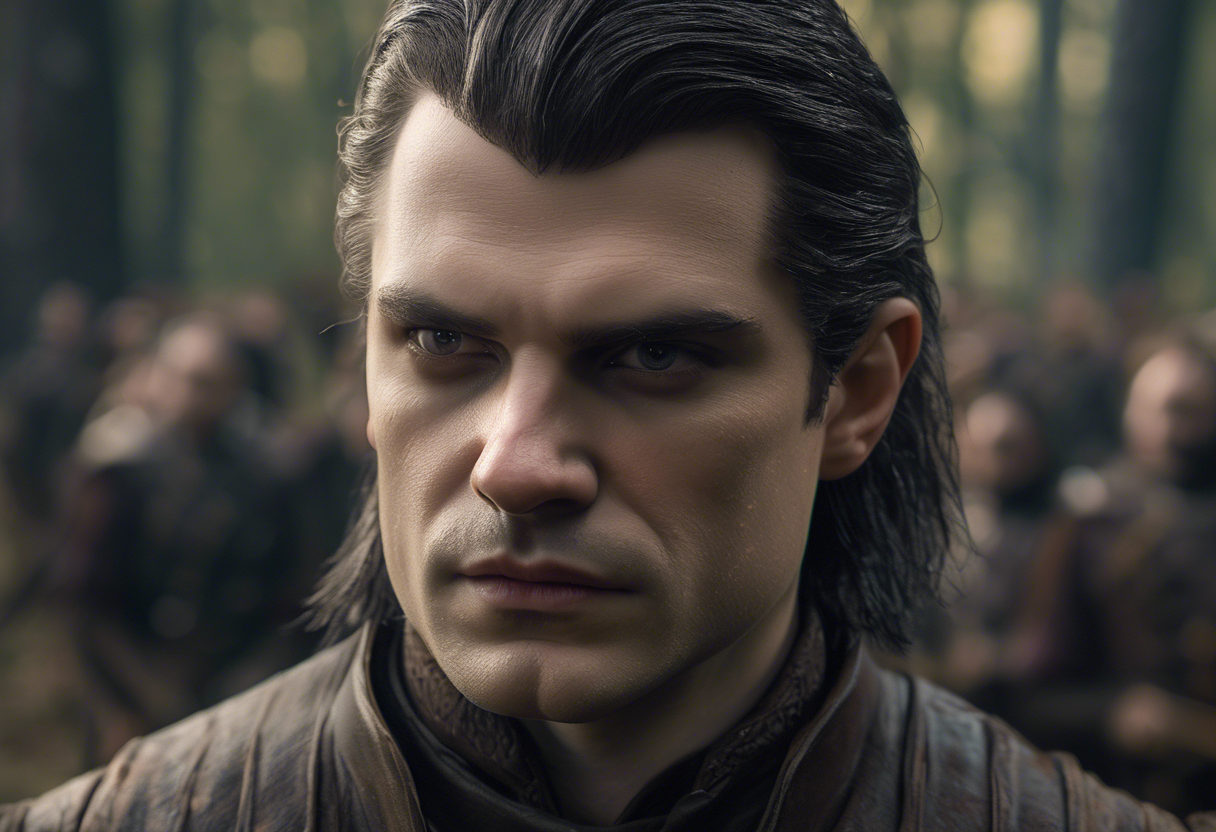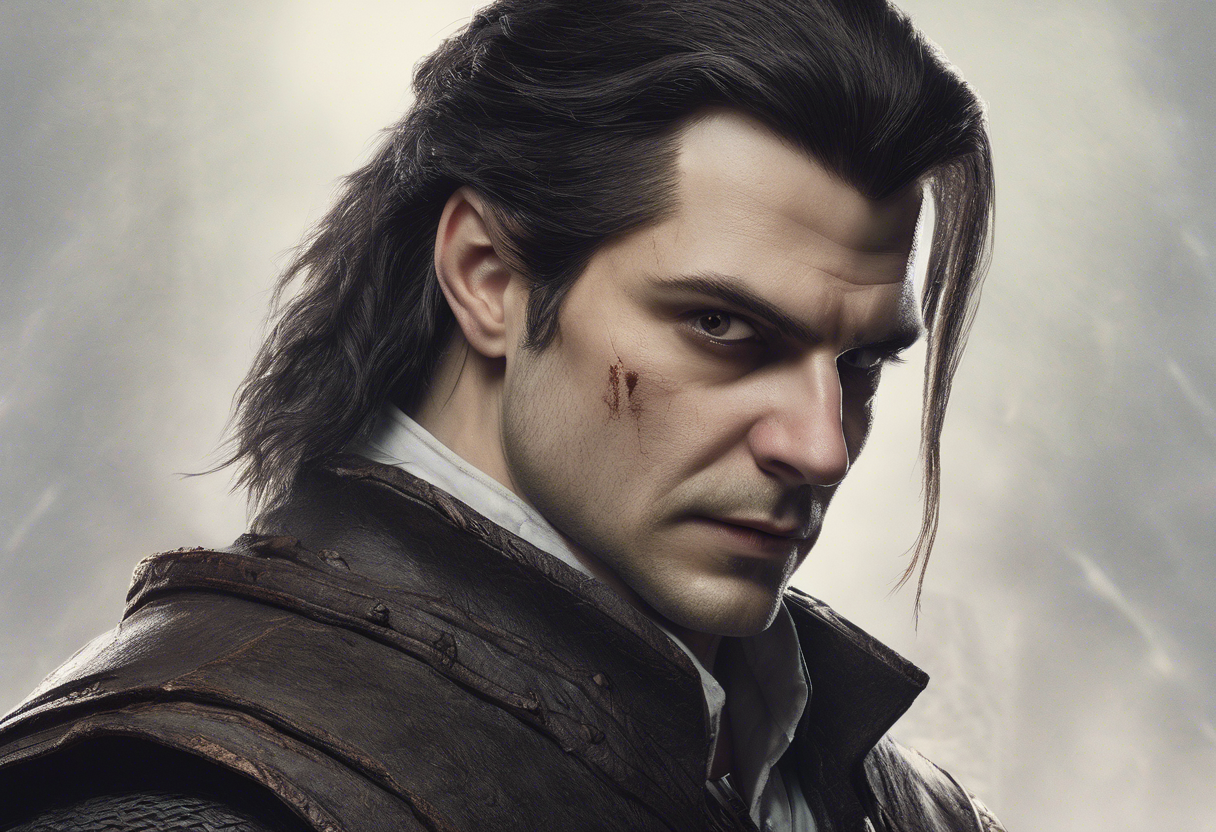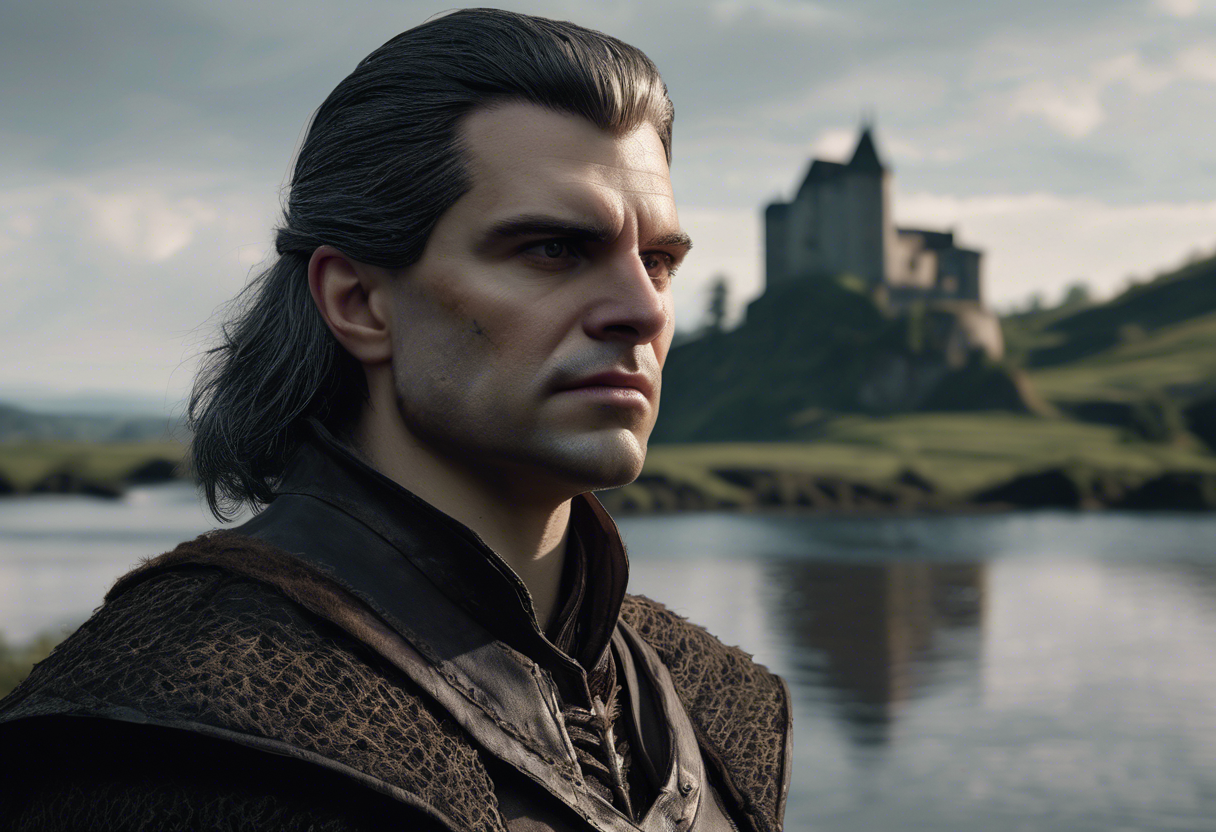Contents
Giselher: The Charismatic Leader of The Rats in The Witcher
Introduction
Giselher, played by Ben Radcliffe in the Netflix series The Witcher, is a pivotal character introduced in the third season of the show. He is the charismatic and dangerous leader of a violent and troubled gang known as The Rats. Giselher’s origins and backstory are deeply rooted in the traumatic experiences of the Continent, particularly the aftermath of Nilfgaard’s conquests.
Giselher is a deserter from an unknown army, who after leaving the military, joins a local gang similar to The Rats. His journey takes a significant turn when he and his gang mistakenly enter free elf territory, leading to a brutal encounter with the elves. Giselher is the sole survivor, pinned to a tree by an elven arrow, but is rescued by an elf named Iskra, who later becomes his lover and a member of The Rats[1][4].
Giselher’s significance in the series lies in his leadership of The Rats, a group of teenage outlaws who have been victims of the war and its subsequent traumas. His character embodies themes of survival, violence, and the moral ambiguities that arise in a world ravaged by conflict. This makes him a compelling figure within the broader narrative of The Witcher, connecting to literary traditions of anti-heroes and morally complex characters.
Role in the Series
Giselher’s storyline is intricately woven into the narrative of The Witcher season 3, particularly through his interactions with Ciri, who joins The Rats after escaping her captors. Giselher’s charisma and cunning earn him the unofficial leadership of The Rats, a group that includes Mistle, Iskra, Kayleigh, Reef, and Asse. Together, they engage in a life of theft and violence, driven by their traumatic pasts and a lack of empathy[1][4].
Giselher’s relationship with Ciri, who adopts the alias "Falka," is significant. Ciri, severely scarred by her recent experiences, finds a sense of belonging among The Rats. Giselher’s influence on Ciri is profound, as he encourages her to embrace her violent tendencies, which becomes a crucial aspect of her character development[1][4].
However, Giselher’s arrogance and overconfidence ultimately lead to the downfall of The Rats. They are massacred by the bounty hunter Leo Bonhart, marking a tragic end to Giselher’s story. This event is pivotal in Ciri’s journey, as it forces her to confront the consequences of her actions and the fleeting nature of her alliances[1][4].
Character Analysis
Giselher’s personality is a complex mix of charisma, cunning, and a proclivity for violence. He is a dangerous warrior who has survived against all odds, which has hardened him and made him a natural leader among The Rats. His motivations are rooted in survival and a desire for power, which he achieves through his leadership of the gang[1][4].
One of Giselher’s most significant strengths is his ability to inspire loyalty among his followers. Despite their troubled pasts, The Rats form a tight-knit group that is fiercely loyal to Giselher. However, his arrogance and overconfidence are his most glaring flaws. These traits lead him to underestimate threats and make reckless decisions, ultimately resulting in his demise[1][4].
Giselher’s character development is marked by his interactions with Ciri and the other members of The Rats. Through these relationships, his true character is revealed, showcasing both his protective side and his violent tendencies. This duality makes him a compelling and relatable character, as audiences can see the humanity beneath his tough exterior[1][4].
Themes and Symbolism
Giselher embodies several themes that are central to The Witcher series. One of the most prominent is the theme of survival in a harsh world. Giselher and The Rats are products of the war-torn Continent, forced to live by their wits and their blades. This theme highlights the moral ambiguities that arise in such environments, where characters must often choose between right and wrong based on their immediate needs rather than moral principles[1][4].
Another theme associated with Giselher is the destructive nature of unchecked ambition and arrogance. His downfall serves as a cautionary tale about the dangers of overconfidence and the importance of humility. This theme is symbolic of the broader narrative’s focus on the consequences of one’s actions and the importance of balance in one’s pursuits[1][4].
Cultural Impact
Giselher’s character has had a significant cultural impact, particularly among fans of The Witcher series. His introduction in season 3 marked a dark turn in Ciri’s story, adding depth to her character and the world of the show. The Rats, as a group, represent a segment of society often overlooked in fantasy narratives—the young, the traumatized, and the morally ambiguous[4].
In adaptations and spin-offs, Giselher’s character has been well-received for his complexity and the dynamic he brings to the story. His portrayal by Ben Radcliffe has been praised for capturing the essence of the character from the books, making him a memorable figure in the series[2][4].
Critical Reception
Critics and audiences have generally praised Giselher’s character for his depth and the impact he has on the narrative. His storyline with Ciri has been highlighted as a particularly strong aspect of season 3, adding a layer of complexity to her character and the world she inhabits[1][4].
However, some critics have noted that Giselher’s character, while compelling, is also somewhat predictable in his downfall. His arrogance and overconfidence are classic traits of a character destined for a tragic end, which some viewers might find a bit clichéd. Despite this, his overall impact on the series has been well-received, with many appreciating the nuanced portrayal of a morally complex character[1][4].
Legacy
Giselher’s legacy in The Witcher series is one of complexity and depth. He represents a character archetype that is both flawed and compelling, making him relatable and memorable. His influence on Ciri’s journey and the broader narrative of the show is significant, adding layers to the story that explore themes of survival, violence, and moral ambiguity[1][4].
In contemporary discussions, Giselher’s character serves as an example of how anti-heroes and morally complex characters can enrich a narrative. His story underscores the importance of character development and the need for nuanced portrayals in fantasy storytelling. As such, he has inspired other works and character archetypes, contributing to the rich tapestry of fantasy literature and media[1][4].
References
- https://screenrant.com/the-witcher-the-rats-group-members-characters-explained/
- https://www.imdb.com/title/tt5180504/characters/nm5181257
- https://en.wikipedia.org/wiki/The_Witcher_(TV_series)
- https://redanianintelligence.com/2023/07/27/who-are-the-rats-introducing-the-witchers-newest-and-most-controversial-characters/
- https://www.imdb.com/title/tt5180504/fullcredits/cast/

